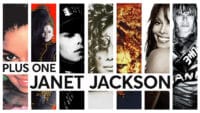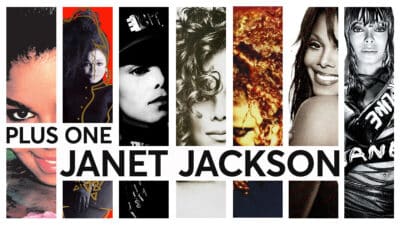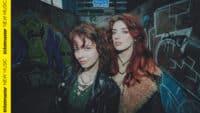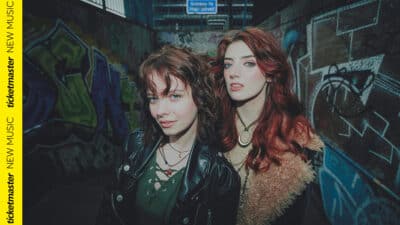Interview
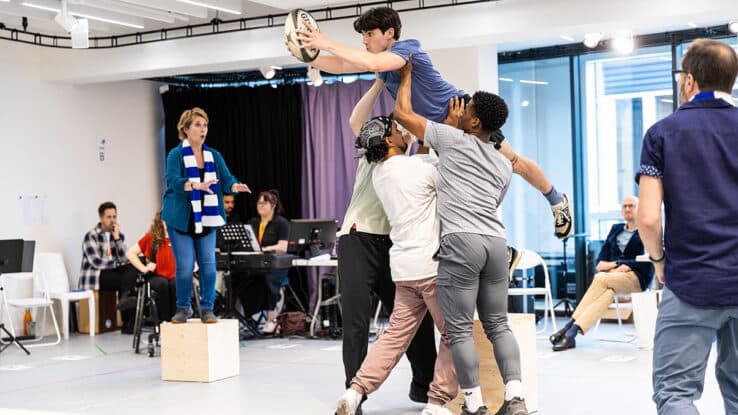
Interview
Nick Butcher on The Little Big Things: ”It’s going to blow your socks off”
The making of the West End's biggest, most important new musical
Back in 2017, Henry Fraser released The Little Big Things, a memoir about life in the wake of a diving accident that left him paralysed from the shoulders down. Fraser, once a rugby hopeful and now a mouth artist and inspirational speaker, posited that you could find new ways of embracing life even after your world has been flipped upside down. His story captured many readers – one of them Nick Butcher, West End performer and aspiring musical theatre writer.
Fast forward to today, and The Little Big Things is a brand-new British musical. Housed in Soho Place, the West End’s newest theatre, it prepares to open for previews this weekend, and Butcher is keen to introduce a whole new audience to Henry Fraser’s story.
“Everyone’s feeling confident that we’re building a show that is really heartfelt, and challenges form, challenges what we’ve seen in the theatre,” he says. “I think everyone’s really excited.”
We sat down with Butcher ahead of opening night to find out more about the process of bringing The Little Big Things to the stage.
How did Henry’s story first come to your attention?
Well, I was living with one of my friends whose husband is a Saracens rugby player. And I was writing songs, but I knew that I needed to find a heartfelt story that I could translate to the stage. He said to me one night over a drink, “You should read this book, The Little Big Things“. He played rugby with Will Fraser who’s Henry Fraser’s brother, who features in our story. So ordered it on Amazon, read it in a cafe a day later, and literally had one of those epiphany moments of like, ‘oh, my God, I can see this on stage’. I literally wrote Henry Fraser a letter. Before this, I’d been in the West End for 10 years, so I’d been in a lot of musicals, been on stage, been in great rooms with Cameron Mackintosh and Andrew Lloyd Webber and Julian Fellowes and all these people making musicals, and I thought, I think I know what this can be.
So I wrote him a letter saying, “I write musicals”. I hadn’t written a musical before, but I was writing what I thought were good songs. He invited us to his house. And I went along with Tom Ling, who I’m co-writing lyrics with, and we sold him the version of The Little Big Things that I thought would be on stage.
It’s funny, isn’t it – when you look back, you think, that was a version of what the show is today. But of course, it’s completely adjusted every time you bring on new collaborators. But that was really the first sort of glimmer of light, of ‘I think I know what this could be’. But we’re doing it at the biggest scale possible.
So how did it reach the scale it’s at today?
It really is a process. Henry’s agent called me and went, “I don’t know what you’ve done, because it would never normally get this far. But Henry really likes you. He wants to offer you the rights for a period of time”. So they gave us 12 months, I gave £1000 of my own money. I went away and wrote two songs with Tom. And we handed over those demos, and they loved them.
But we knew we had to find a producer – someone who was going to bring this to the stage. That was another complete coincidence. I’d signed with a top talent agent at Curtis Brown and they were having a meeting with Michael (Harrison) about another musical when my name came up. Michael asked what I was working on, liked the title, and they talked about The Little Big Things for an hour. From that moment on Michael Harrison – Olivier Award-winning Michael Harrison – has been our producer on this musical and has supported us every step of the way.
So that was a big part of our journey. Someone from America saw a showcase that I did and invited us out to write on the Connecticut River. We were there with Michael R Jackson, who wrote A Strange Loop, and Miranda Cooper, who wrote all the Girls Aloud stuff, everyone working on their own musicals. Every night we’d have to come together and present what we’d done that day. That’s where the first draft of The Little Big Things happened.
We flew home and two weeks later, it was COVID. Everything stopped. But actually, it was great time for us to keep writing. That’s the point where we went out to our amazing director Luke Sheppard, who had time to read it, had time to engage with it. That sort of gave us another gear shift that took the show forward. And at that point we also met Nica Burns, who was building this brand-new West End theatre – the only fully accessible West End theatre for wheelchair users and people of disability, front of house and backstage – and we knew we had a home for our show.
Once you find your home, everything starts to fall into place. And that then raises the bar again. Every song has to meet the grade, every scene has to meet the grade, the casting process, everything around it sort of ramps up. We got the green light early this year, and now here we are, ready to open.
Going from reading the book in a coffee shop to opening in the West End is quite the journey.
It’s pretty mad. I have that letter that I wrote to Henry and it’s still in my inbox. I haven’t looked at it since the day that I sent it. I think I’m going to have a ceremonial moment, but not right now because I just want to sort of get to the end of the process and go there. And then I’ll be a bit reflective, but right now, I’ve got a job to do.
In discussion of this show and this story, words like ‘life affirming’ and ‘uplifting’ come up over and over. What was it like working with that material through COVID?
I think, during COVID, everyone realised what their own Little Big Things were. Whether that was family, whether that was that they were in the wrong job… I think this story became more prevalent than ever in everyone’s life. And that affected the writing as well. I think we all took a moment to breathe and see what was really important to us. And, of course, that correlated with Henry’s story.
As writers, we are very much here to enhance and support the telling of Henry’s real-life story. Everything comes from a place of truth. But also, it’s been sort of vital to collaborate with disabled creatives and actors to bring real life experiences to the project. It’s been crucial for us to have them as part of our core creative team, as part of our cast.
And then coming out of COVID, even our workshops were affected by having to sit opposite sides of the room, and by having to try and workshop things in that environment. Having family members being in hospital, and all those things our story encounters, we sort of had a bit more firsthand experience. I think in a post-COVID world, The Little Big Things is more apt than ever.
I’d love to know more about that process of working with disabled performers and creatives, especially because the show is the first West End production to feature a wheelchair user as its protagonist.
You know, I made my West End debut as a performer at the age of 19, in a brand-new musical at the Gielgud Theatre. From then, I’ve gone on to be in five West End musicals. I’ve worked in Chichester, Sheffield, Opera North, the Barbican, abroad, and I have never seen or been part of a show where a lead protagonist is a wheelchair user. And I think that’s huge. I always want to be moving the needle, to be doing something new, to be breaking boundaries. And I think this show is going to be doing it.
But like I said, we couldn’t do this alone. So we brought on Nickie Miles-Wildin, who is our dramaturg and associate. Nickie is a wheelchair user and has been amazing with us, making sure this isn’t what she would call “inspiration porn”. It’s about real-life stories, and the ripple effect they have on a family. And then we have our cast – Amy Trigg, Ed Larkin – bringing in their own lived experiences at every stage of the development process too. We also have disabled musicians, so it goes into every department. Having that lived experience feels vital. It doesn’t feel optional, actually. It was definitely either like this or we don’t do it.

What was it about this story that spoke to you when you first read it?
My dad was a rugby player. So the rugby family element resonated so much with me. Also, my mom’s best friend, when we were younger, was a performer and had a stroke when she was 30 years old. And it completely changed his life. We as a family helped him make the strongest recovery possible. And still, 20 years later, we speak weekly, and I see pictures of him improving in the gym and overcoming all the obstacles that have been thrown at him in life. And I think that had a big part to play in my empathy with Henry.
So, in a way, I have brought my own lived experience to the piece. And I think audiences will do the same. We have two interpreters in the room because Mark, our choreographer, is deaf. Yesterday, we did a full run through, and for the last 20 minutes, she was crying her eyes out.
We work quite hard for it not to be a sad story but it just brings it to the surface. It’s moving. Our director, Luke Shepard, directed a piece called My Son’s A Queer, which was Olivier-nominated in the West End last year. It’s a one man show about a young British child growing up, and after I saw it I just walked across Chelsea bridge and cried. And it’s not because it was trying to make you cry, it was just so cathartic in the way the show was put together. I was like, ‘if he can do that with no budget in a very small fringe theatre, imagine what he could do with Henry Fraser’s story…’.
Is that what you hope audiences take away from this show, that sense of catharsis?
Yeah, and I hope people leave the show and call the people they love the most and tell them that they love them. I remember sitting in the cafe finishing the book, getting emotional, and thinking, ‘if I can make an audience feel how I felt when I read the last two pages, then I think we’ve got something’. And I think that’s happening.
How much of the show have Henry and his family seen at this point?
The family have seen and read everything. They are, I think, coming to the first preview. I’ve heard on the grapevine, through the friend that got me in contact with him originally, that when Henry gets drunk he likes to play the songs. I think he sort of puts them on repeat for everyone, when he’s a couple of drinks down. There’s a couple of songs in the show that I hope will reach beyond the musical itself and speak to a wider audience. Maybe those songs will get adopted for people’s graduations or charity concerts or something, because I think there’s a couple of anthems there which really resonate.
How would you categorise the music generally, in this show? What can people expect?
People can expect a big, theatrical pop album. It’s huge. We have got the best sound system in the West End. The first thing in the design process was the sound. It’s big, theatrical pop, combined with theatrical storytelling. So the songs always come from the character. But I was also always trying to tune in to what Henry would have been listening to in his headphones when he was making a recovery, for months on end. What was the soundtrack to his life? That provides the bedrock of our show. The way I write is, I produce the tracks like you’d want them to sound on an album. And then we reverse engineer and think, ‘okay, how do we make it sound like that onstage?’. You should be listening to something that you feel like you recognise, but it’s completely brand new.
Having those huge anthems in the round must bring an extra element as well.
It’s going to be quite cinematic. If you think about it technically, instead of one speaker, you have four speakers, and we’ve got big subs in the middle which sort of get you in the heart, and then you sort of work outwards from there. It’ll blow your socks off.
How did you approach designing the show for the round?
I think that it was a challenge and a gift at the same time. I think audiences are loving immersive theatre and I wouldn’t call our show immersive, but I definitely think you’re going to feel like you’re in a cinematic experience with those characters. There are only six rows at the maximum. So you’re never more than six rows back from the experience on stage. You’re going to feel like you’re in it.
We can be really creative with the sound too, so the music can pulse around the theatre. We can have crowd sounds coming from behind, like you’re in a stadium, but then we can have other elements coming at you from the front. We have Grammy-nominated sound designer Paul Gatehouse, who is doing the most amazing work.
I think it’s gonna be like something you’ve never seen in the theatre before. I think it’s pushing boundaries, in a sonic world, but also giving you all the hooks and the tunes and the melodies to take away with you. You want to get in the car and play that soundtrack.
What are you most looking forward to about seeing it all on stage?
I can’t wait for the crowd to go wild on that first night. I think people don’t know anything about the show, and I can’t wait for people to learn about The Little Big Things and what we’ve been creating quite quietly over the last couple of years. And hopefully we’ll make the album. So I’m excited for people to fall in love with the album and come and see the show and know the songs. I like the idea of people coming in loving the songs and going out loving them even more. I just I hope audiences fall in love with it as much as the rehearsal room is falling in love with it.
People have been begging in the UK for brand new British musicals with an unknown creative team, with a British story, in a West End theatre. And we’ve got it. So I hope people like it.
The Little Big Things opens at Soho Place on 2 September. Find tickets here.
Photo credit: @shonalouiseblog




